BELGRADE, 21.03.2018. – Investigating the kidnapping of Ljubomir Knezevic, a journalist from Pristina’s Jedinstvo, and a correspondent of Belgrade’s Politika, the Journalists Association of Serbia (UNS) found that in 2001, the lawyer Stoja Djuricic, suspected that he was kidnapped by a group led by Gani Ymeri, KLA in the Vucirn region.
She, as the representative of the injured parties, asked for the extension of the then ongoing investigation into the kidnapping of the six men and the attempted murder of a Serb civilian, which was led before the Mitrovica District Court against Gani Ymeri.
According to the UNS’ findings, a little after that, the investigation against Ymeri began to crumble due to open murder threats against the protected witness. When the international investigative judge Leonard Assira, due to threats against the protected witnesses, allowed the testimony of the investigator, he was excluded at the request of the defense, along with the international prosecutor Matti Hynynen. After the threat, and prosecutor’s and judge’s replacement, the investigation reached a dead end, and the suspect has been released from the custody after five months.
The family of Ljubomir Knezevic has not heard a word about this so far.
– Nobody informed us. This is what we are hearing from you now, said Ljubomir’s son Goran for the UNS Dossier.
The suspected KLA commander
Former Commander Gani Ymeri is the first member of the KLA suspected of serious crimes against Serb civilians. He was arrested on November 24, 2001, while traveling from Vucitrn to Pristina, under suspicion he kidnapped Nenad Mihajlovic, Aleksandar Mihajlovic, Branimir Mihajlovic, Vladimir Mihajlovic and Vladimir Mladenovic, an attempt murder of Nenad Mihajlovic, all of them from Gojbulje near Vucitrn. The crime occurred immediately after NATO forces arrived to Kosovo on June 25, 1999, and apart from the statements of eyewitnesses and two Serbs who managed to escape, the prosecutor also had a statement from a Serb Roksana Radosavljevic that Ymeri admitted abductions to her over telephone conversation. More about this in the following articles.
Investigation supplement
After Ymeri’s arrest, on December 18, 2001, the lawyer Stoja Djuricic sent a request for the extension of the investigation, listing the names of 23 victims from Vucitrn, adding Ljubomir Knezevic on the first place, and who was missing as of May 6, 1999. As orderers, Djuricic mentioned Gani Deliu and Agim Berisha, and Seid Kalluda, Muharrem Salihu, Sali Selihua and Ismail Galica as direct perpetrators, “on grounds of reasonable suspicion that they committed the crime of genocide.” According to the UNS’s dispositions, none of them were detained.
The request states that “Gani Ymeri and Gani Gjela, in the capacity of the leaders of the paramilitary formations of the KLA, issued orders to their subordinates to carry out abductions of the non-Albanian population, which they executed, and brought the abductees to the cellars of the department store in Vucitrn where they physically tortured them for the purpose of destroying members of the Serbian community and other ethnic minorities living in the area. “
– In order to determine criminal responsibility of the suspects, and criminal offense they are charged with, as evidence we propose the hearing of the injured parties as witnesses who know the details for each particular event described above – said lawyer Djuricic, adding that the names of the witnesses will be subsequently delivered.
The data that the UNS found indicate these witnesses were questioned eight months later, only after Ymeri was released from the custody.
Murder threats
According to UNMIK, two months later, on February 19, 2002, the prosecutor requested that the status of the protected witness be assigned to a person who was supposed to testify about Ymeri’s involvement in the abduction of Serbs from Gojbulja. The hearing was scheduled for the next day, but when the investigators of the Central Criminal Investigation Unit came in the morning to escort him to the court, he refused this because of a phone call he received on his mobile phone the night before. The person who called him threatened to kill him and his family in case of any evidence against Ymeri in the court.
By protecting the witness’s safety, the prosecutor, instead of talking to him, asked the investigators to give a testimony regarding the statement given by the witness, to practically retell the story. The judge accepted that, but the defense filed an objection and sought an exemption of both the prosecutor and the judges for “unlawful acts and a biased approach to the case.” According to the UNS, there was no investigation into the threat to the witness.
Crushing the investigation
Regardless of this event and the fact that the victims immediately marked, and later additionally through photographs, confirmed the identity of the kidnapper, on May 14, 2002, the new investigating prosecutor requested that they come to the courtroom in the Mitrovica District Court and to, again, “face to face, live” personally identify him.
In practice, the prosecutor decides on such a move when there is a likelihood that the witness could change the testimony. In the group of men who were brought before the victims on that day, only one victim recognized Ymeri.
Ten days later, on May 24, 2002, the new investigating judge concluded “it is justified to release the accused after five months of detention.” In judicial practice, however, the most common reasons for detention are: the danger of escape of the suspect, suspicion of the influence on witnesses, possible harassment of the public or repetition of the crime. The court was aware of the earlier threats to the witness, and the release of Ymeri from the custody clearly sent a message to the witnesses that they would not be protected, that the suspect was “stronger” than the court. Judicial practice shows that, in precisely these circumstances, most of the eyewitnesses gave up on testifying against the suspect.
After that, the investigating judge interviewed three additional witnesses, O. B, D. J. and M. M. on July 2, 2002 regarding the request for the extension of the investigation requested by lawyer Stoja Djuricic. As noted in the UNMIK files, they did not provide any information to support the claims of the lawyer. The case was terminated on two different dates: October 17 and October 28, 2002, and the registrar of the District Court in Mitrovica stated that according to their data, the case was “suspended”.
The wall of silence
Lawyer Stoja Djuricic, the first who, after the withdrawal of the Serbian army and police, went to Kosovo to help and represent Serbs in the UNMIK courts died in 2002. The attempt to find out based on what information or testimony she requested the prosecutor to also include the disappearance of journalist Ljubomir Knezevic, did not yield any results. The lawyers from Belgrade, with whom we talked, who came to Kosovo afterwards, did not know the details of this case.
What the investigation looked like, whether there were any pressures, whether the allegations that Djuricic presented were investigated, we also wanted to ask the judge Assira from Cameroon and the prosecutor Hynynen from Finland. UNMIK has officially responded to us that they do not have their contact details.
Except through accessible address books, we also tried to reach Judge Assira through the embassy of Cameroon in Berlin and the diplomatic representative office of Serbia in Abuja (the embassy in Nigeria is also responsible for Cameroon). From the first we did not get an answer, and from the other we were told that “due to the circumstance currently in the diplomatic-consular representation due to the lack of staff, we are not able to provide you with the information requested.”
We tried to contact Assira also through the International Criminal Tribunal for Rwanda for which he also worked. The Hague directed us to the UN International Criminal Tribunals in Arusha (Tanzania). At the end of this correspondence, Head of Human Resources Department Edith Ndirangu informed us that our request was sent to Mr. Assira. Since November 14, 2017, we have not received an answer.
We tried to find Finnish prosecutor Hynynen on the basis of publicly available data, and at the end of last year and early this year, we asked for help from the Finnish embassy in Belgrade and Pristina. However, even with their mediation, we were unable to establish contact with him.
UNMIK had more information
Nevertheless, according to the UNS, UNMIK investigators had an additional information linking Knezevic and Ymeri. In their investigation files, they recorded the information from the list of the Serbian Coordination Center for Kosovo and Metohija with the names of persons linked to the KLA who are suspected of having participated in crimes against civilians. It mentions S. S. a member of the KLA that was active in Vucitrn, and states that he “participated in the abduction and murder of Ljubomir Knezevic.” The same information states that Ymeri was a member of those units.
Ymeri joined the KLA after returning from Germany, where he lived for 14 years. During the war, he became the commander of the Vucitrn region, and after arrival of international forces to Kosovo, he was deployed to the command of the 343th Brigade of the Kosovo Protection Corps, whose primary task is the protection of civilians. In the public, the KPC was perceived as the beginning of the army, and at the end of January 2009 it was transformed into the Kosovo Security Force.
He is not the only one whose name is connected with the disappearance or kidnapping of our colleague Ljubomir Knezevic. But none of the allegations were fully investigated, or perpetrators brought to justice. Data on this, starting with the opinion of the UNMIKs The Human Right Advisory Panel (HRAP), will be published in the following article.
The Ymeri family were the first neighbors of Knezevic. Since Ljubomir’s sons moved out of Kosovo in the 1980s, they almost did not have any information about them. And all the knowledge about the events before and after the kidnapping of their father, they heard from their mother Cveta who died in 2017.





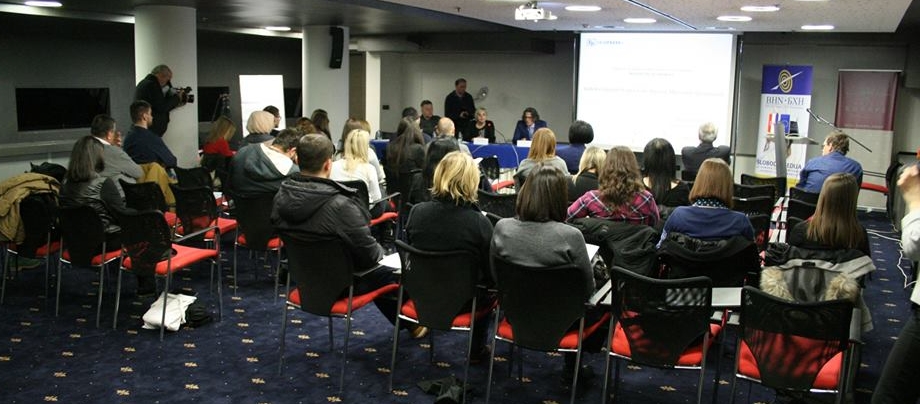
 “We conducted a horizontal and vertical survey through the collection of empirical data in the countries of South-East Europe. The data gives additional insight into the individual situation in these countries “, said the director of the Partnership for Social Development Munir Podumljak who presented the goals, methodology and the basic findings of the regional research.
“We conducted a horizontal and vertical survey through the collection of empirical data in the countries of South-East Europe. The data gives additional insight into the individual situation in these countries “, said the director of the Partnership for Social Development Munir Podumljak who presented the goals, methodology and the basic findings of the regional research. Ana Hećimović from the Prtnership for Social Developmemt pointed out that Croatia as well has the problem of media ownership that is in the hands of members of the criminal organization, and that during the research period there was a case of suspicious and non-transparent sale of the regional newspaper Novi list.
Ana Hećimović from the Prtnership for Social Developmemt pointed out that Croatia as well has the problem of media ownership that is in the hands of members of the criminal organization, and that during the research period there was a case of suspicious and non-transparent sale of the regional newspaper Novi list. Besides to measuring the reality of the media in Southeast Europe, the Index provides a detailed insight into all aspects of the functioning of the media for decision-makers as well as for those who want to participate in public debates on media policies.
Besides to measuring the reality of the media in Southeast Europe, the Index provides a detailed insight into all aspects of the functioning of the media for decision-makers as well as for those who want to participate in public debates on media policies.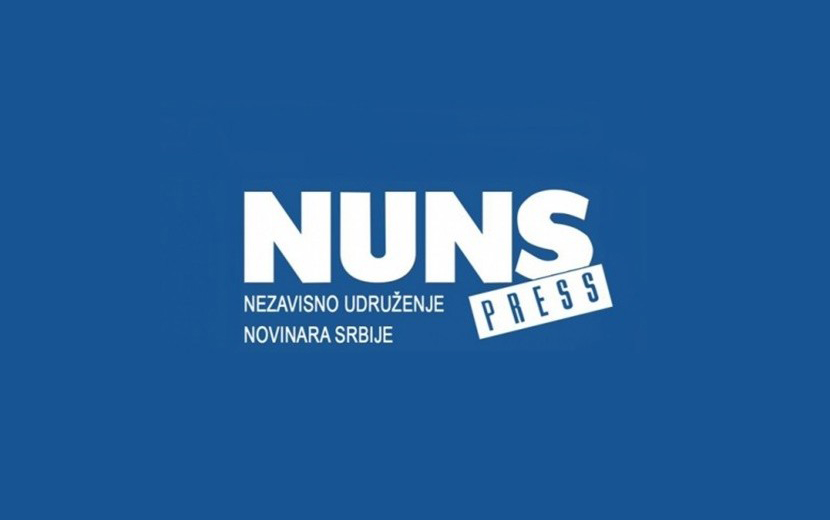
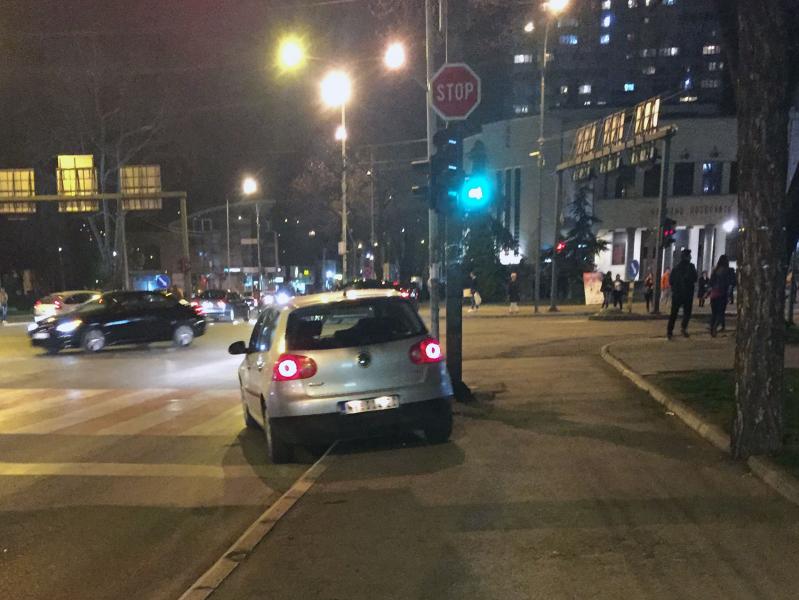
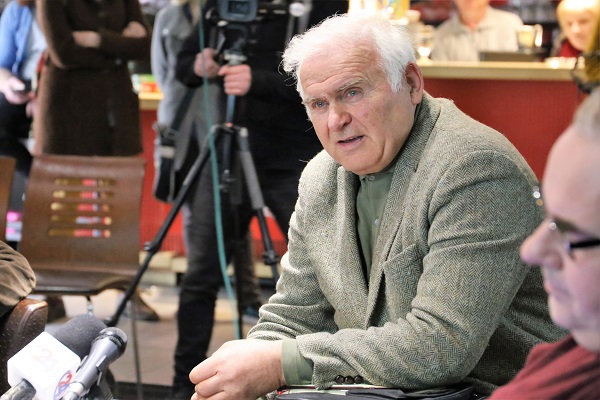
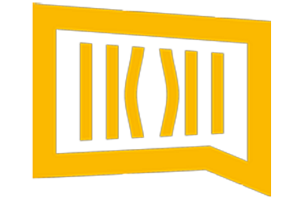
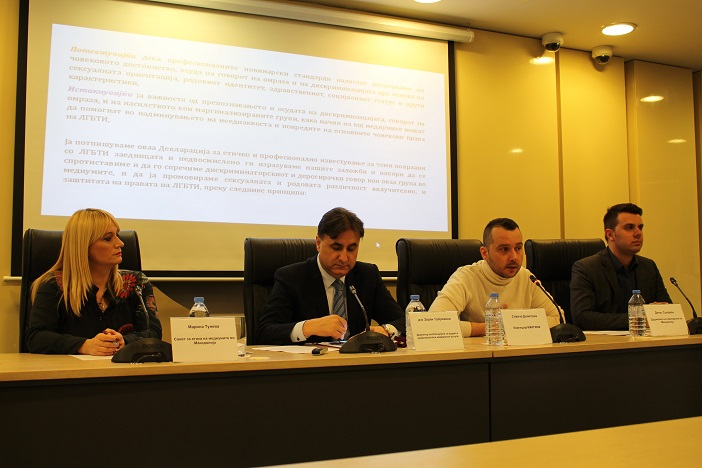

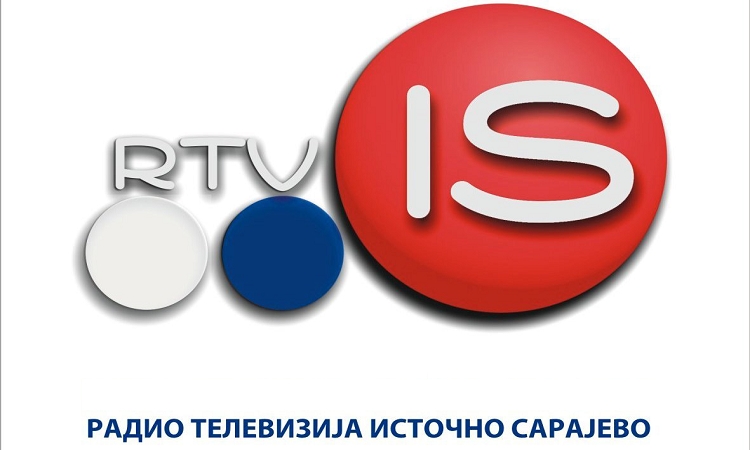
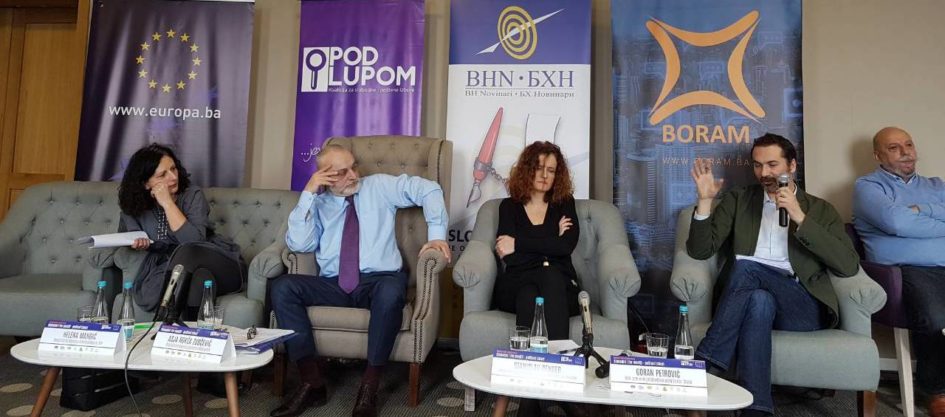
 Providing a democratic environment for elections means the contribution of relevant institutions and actors of civil society, especially the media, in order to bring the electoral process closer to citizens and the public interest, “said Vladimir Pandurević, program manager from the EU Delegation to BiH.
Providing a democratic environment for elections means the contribution of relevant institutions and actors of civil society, especially the media, in order to bring the electoral process closer to citizens and the public interest, “said Vladimir Pandurević, program manager from the EU Delegation to BiH.
 Benjamin Butković, editor of BHT-a, pointed out that the independency of the PBS’s is questionable because of the unsolved system of finacing, while simultaneously from the legislative level, voters are sent a message that they do not need to pay RTV fee.
Benjamin Butković, editor of BHT-a, pointed out that the independency of the PBS’s is questionable because of the unsolved system of finacing, while simultaneously from the legislative level, voters are sent a message that they do not need to pay RTV fee.